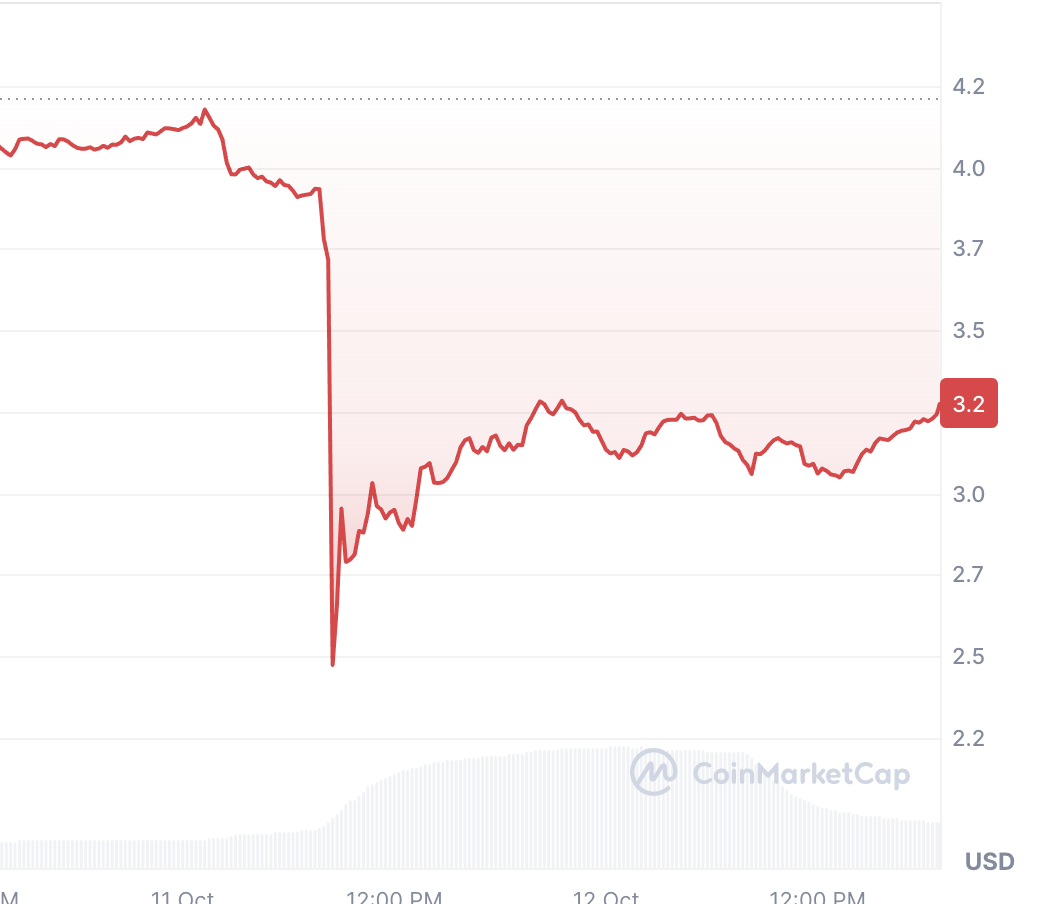Bucket shops, crypto, and flash crashes
Imagine you run a crypto exchange that offers up to 20x leverage on speculative crypto coins (aka altcoins, shitcoins) like Cosmos (ticker:$ATOM). Only altcoin enthusiasts would know anything about $ATOM. The market cap is about USD1.5 billion.
Joseph Aloysius Bloggs (commonly known as Jo Blo) decides to open an account at your august establishment with $10,000 and levers it up 10x to buy $100,000 of $ATOM.
Jo Blo is among your offshore crypto exchange’s many clients (Know Your Customer isn’t really a thing in offshore exchanges.)
Now suppose your crypto exchange actually buys the $ATOM (rather than just telling Jo Blo that you have bought it) — about which more later. Then you’ve spent $100K on crypto — of which $90k presumably was financed — and you have lent Jo Blo $90K. This, of course, is difficult for you, because it is not obvious where operators of a little offshore crypto exchange are going to find the $90K (times many) needed to finance Jo Blo and his brethren.
Say Jo Blo is lucky or smart (probably lucky) and the price of $ATOM doubles. If Jo liquidates his position, all is well: He sells $200K of $ATOM, repays his $90K loan, and sails off into the sunset with $110K in cash and a manageable tax bill.
But suppose $ATOM hits a rough patch and suddenly drops 20% . Eventually your blessed crypto exchange has a problem: There is a $90K loan to Jo Blo (whoever he may be) and only $80K of collateral. Moreover, since your crypto exchange has financed the $90K loan to Jo Blo, you in turn have debt.
You liquidate Jo Blo. Jo Blo glowers at his iPhone, having done his dough — and your crypto exchange has a $10K shortfall.
Do this enough times and your crypto exchange goes bust.
Lots of shitcoins will make 10-15% moves in discontinuous markets. The way your exchange guards against going bust is by not actually buying all the crypto that Jo Blo thinks he owns.
An exchange that doesn’t buy the underlying asset they have promised their clients is known as a “bucket shop.” This comes from the 1920s practice of gambling houses “trading” in stocks but really keeping all the money in a bucket.
Running a bucket shop is easy; it eliminates the problem of financing the $90K loan to Jo Blo. You simply tell him you have lent him $90k and charge him interest on the $90K. But you don’t actually lend him $90K, and you don’t buy any $ATOM on his behalf.
Bucket shops have a long and dishonorable history in finance. They are illegal in the US — at least for stocks. This is one reason it matters whether the SEC (currently run by a former crypto lobbyist) thinks crypto is a security: If crypto is a security, crypto bucket shops are illegal.
They are, in any case, often legal outside the US. Plus500 (an Israeli, retail-focused trading platform) does not hedge all its client positions but simply refuses bets if the exposures become too large. Online reviews also allege Plus500 makes it difficult to collect winnings. Plus 500 has had legal problems in Belgium, and for legal reasons, can only offer a very limited set of its products in America.
Problems when the market rises
Bucket shops do not buy all the shares (or coins) necessary to hedge every client position. This is because they can’t manage the risk of a market plunge.
But as a result, they have a big problem in a bull market.
Imagine your little crypto exchange, now a bucket shop, does not actually buy $100K of $ATOM on Jo Blo’s behalf. Then suppose $ATOM doubles — a realistic outcome in the recent bull market. Now you owe Jo Blo a net $110k and you simply haven’t earned it. You have a very big shortfall.
This happens repeatedly, until the rising market renders your bucket shop insolvent.
It is not the sort of insolvency that is going to get called out. By now, Jo Blo’s account is up so far, he thinks he is a genius. Why cash in and go home? With customers like Jo sticking around, you are book-insolvent rather than illiquid.
But make no mistake: Your little bucket shop is now — at least in an accounting sense — insolvent.
The bucket shop drive
There is a solution to this insolvency, a simple one. One that was known in the 1920s as a “bucket shop drive” and was a discussion point in Reminiscences of a Stock Operator.
One day your little bucket shop (which has become the hub for trading $ATOM) has a little computer glitch. It does not matter whether it is accidental or deliberate. For 15 seconds — and it would not take any longer — you accept sell orders for $ATOM as usual, but impose a short lag before accepting buy orders.
The price of $ATOM, of course, immediately plummets. As many of your clients are 5-10x levered, you have a pretext to “close them out”. You are not really closing them out, because you never bought any $ATOM in the first place. You just say you are closing them out.
Jo Blo has now lost all his money. And you (being a bucket shop) never actually bought anything with his money — so you get to keep any money (or bitcoin) he deposited in the account.
It is that $10K initial deposit that is your revenue line. That is all.
Here is $ATOM’s price over the past few days:
In light of the plunge, you “liquidated” every levered account. Yet in truth, you did not liquidate anything. It was all just book entries. You kept Jo Blo’s money and the money of every other highly levered client.
And that is the end of your insolvency.
All is good in the world. At least for people running offshore crypto exchanges who get to keep all their clients’ deposits.
For discussion.
John
P.S. The leverage discussed in this post is moderate compared with Coinbase’s recent announcement: “We just leveled up. Perpetual futures are no longer capped at 20x — say hello to 50x leverage.”
P.P.S. This exchange (probably parody) on Twitter sums up what happened nicely:
“So you put $5,000 on a credit card to trade crypto, and in five years you turned it into $9 million?”
“Yes Dave”
“And you then lost it all in twenty minutes, and in those five years you never paid off the credit card which now has a $28,600 balance?”
“That’s correct Dave”



John, you are so cynical.
As I remember Reminiscences, a big part of the game in the 1920s was assuming that the bucket shop operators were out to get you and trying to prosper in spite of their strenuous efforts to ruin any clients who were making a profit. Are today's crypto traders so much more credulous?
John - love your work and recall some punchy comments on a regulator a few years back which . If any interest in discussing Coinbase and/or Coinbase Australia happy to grab a coffee. (Not sure how we got called out in this piece versus offshore exchanges etc. given weekend's market activity.)